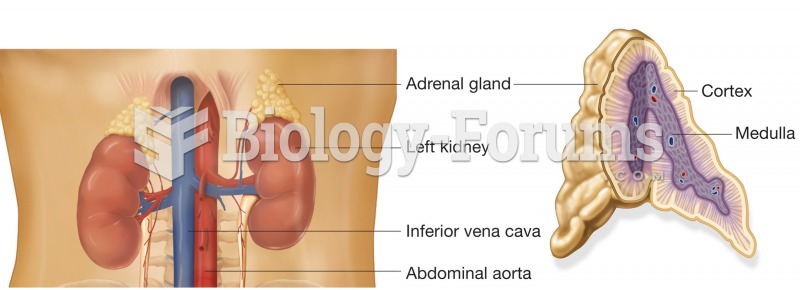This topic contains a solution. Click here to go to the answer
|
|
|
Did you know?
During the twentieth century, a variant of the metric system was used in Russia and France in which the base unit of mass was the tonne. Instead of kilograms, this system used millitonnes (mt).
Did you know?
More than nineteen million Americans carry the factor V gene that causes blood clots, pulmonary embolism, and heart disease.
Did you know?
The first documented use of surgical anesthesia in the United States was in Connecticut in 1844.
Did you know?
This year, an estimated 1.4 million Americans will have a new or recurrent heart attack.
Did you know?
Illicit drug use costs the United States approximately $181 billion every year.
 The adrenal glands. These glands sit on top of each kidney. Each adrenal is subdivided into an outer
The adrenal glands. These glands sit on top of each kidney. Each adrenal is subdivided into an outer
 How people use space as they interact is studied by sociologists who have a microsociological focus. ...
How people use space as they interact is studied by sociologists who have a microsociological focus. ...





